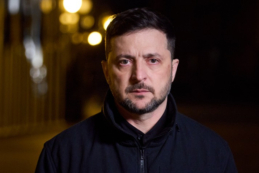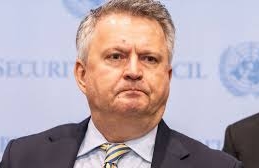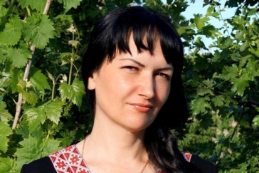war crimes

Occupiers admitted stealing more than 12,000 paintings during occupation of Kherson
The exhibits were taken away in October 2022.
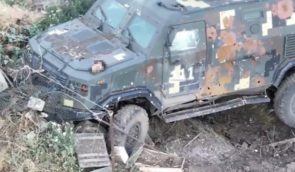
Soldier of Armed Forces of Ukraine beheaded by Russians in Donetsk Oblast has been identified
Kostin added that this incident serves as another proof of Russia's state policy of disregarding international law and universal morality
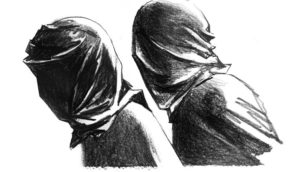
“We were kept in a pit near a petrol station”: a teenager from Kherson region told how he was taken to a torture chamber
The guy was taken to a cell where about 15 people were already there. It looked like some kind of shower room: everything was tiled and there was a drain in the corner. Vitalii was the youngest there.
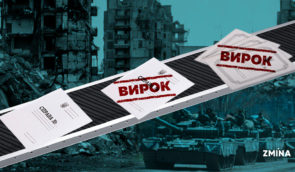
How Ukraine passes judgment on violations of the laws and customs of war?
ZMINA analyzed how Ukraine tries war criminals and what challenges it faces
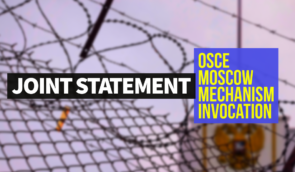
OSCE’s Moscow Mechanism will help Ukraine show the true scale of war crimes committed against civilians by Russia in Ukraine
According to the Permanent Representative of Luxembourg to the OSCE, after bilateral consultations with Ukraine, members of 45 OSCE delegations decided to apply the 8th paragraph of the Moscow Mechanism
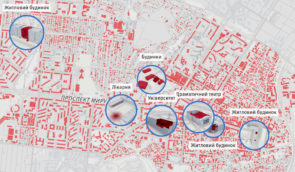
“Mariupol is a pattern of Russian warfare” – how Russia destroyed the city
ZMINA recounts the main points from the study “Our City Was Gone.” Russia’s Devastation of Mariupol, Ukraine"
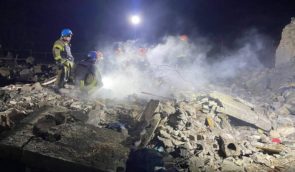
A Russian missile strike killed 11 people, including five children, in Donetsk Oblast while Republicans in the US Congress blocked military aid to Ukraine
S-300 missiles hit the town of Pokrovsk in Ukrainian-held territory in Donetsk region
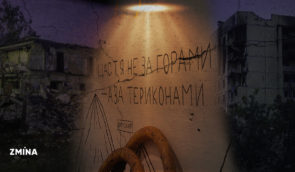
One day with volunteers in the destroyed Vuhledar, Donetsk region
The ZMINA journalist, together with volunteers Andriy and Roman from the Lion's Heart military volunteer association, managed to get to Vuhledar, which was burned by Russian shelling, and saw with her own eyes how this point of invincibility was being equipped
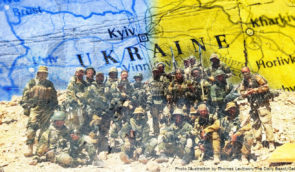
An expert from Burkina Faso calls on the international community to support democratic forces in African countries where the Wagner Group operates
Experts called on the international community to take action to bring the Wagner Group to justice and support democratic forces in African countries where the Wagnerites operate
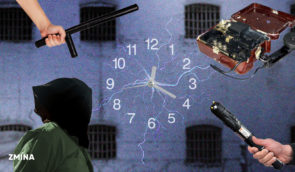
A typical day in a Russian prison (a diary of a civilian hostage)
ZMINA has obtained a diary written by one of the Kremlin’s prisoners, Dmytro (name changed for security reasons), which he secretly kept throughout his imprisonment. We also spoke with Yevgen Yamkovyi and Viacheslav Zavalnyi, who learned firsthand what the modern Russian penitentiary system is like
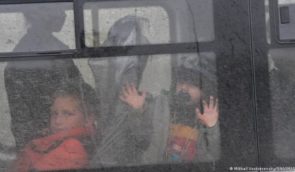
Activists identified the route by which children from the occupied Ukrainian territories are deported to Belarus
The group presented its findings in a research paper released in early August 2023
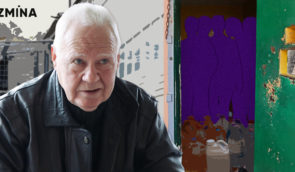
A story of an elderly man from Balakliya on a 12-day hunger strike in Russian captivity
Russian occupying forces took 73-year-old Viktor Illinsky from his home in Balakliya, Kharkiv region, in early August 2022. They wrapped a jacket around his head, put him in a military jeep, and drove him to the local police station. He was held with other civilian hostages, including another man in his 70s, in a cramped […]
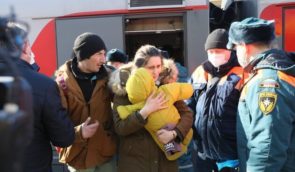
Signs of genocide: Russia’s crimes against children – Report
Human rights defenders concluded that these processes are carried out on the initiative and with the broad support of the Russian leadership, which aims to destroy the ties of Ukrainian children with their national group and make it impossible for them to return to Ukraine
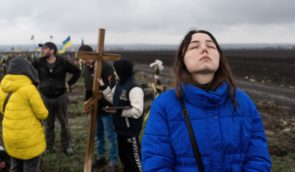
Almost 16% of respondents across Ukraine said they had witnessed Russian war crimes
Almost 16% of Ukrainians across the country said they had witnessed Russian war crimes. These are the findings of a study conducted by the International Center for Ukrainian Victory (ICUV) in cooperation with the Ilko Kucheriv Democratic Initiatives Foundation and the Center for Political Sociology. The sociologists interviewed 2001 respondents aged 18 and older, and […]
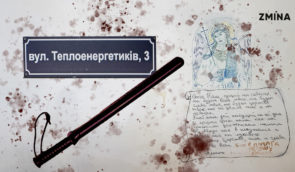
‘Women are not beaten here in Ukraine, but our hands are free’: How Russians held women in seized TDC in Kherson
At different times, at least 30 local women were held at a temporary detention center (TDC) in Kherson, including a policewoman, a housewife, a cadet of a military educational institution, and a head teacher of a gymnasium. This is described in the analytical report "‘Women's cells’ of Kherson torture chamber" which was prepared by Human Rights Centre ZMINA specialists based on testimonies of victims.

A witness account of abduction and torture in Hornostaivka village, Kherson region
Read a full witness testimony of Serhii, a Kherson region resident, about his abduction and torture experience. Due to safety concerns, ZMINA changed the name of the torture survivor

Russian forces continue to violate the property rights of Ukrainians in temporarily occupied Crimea, flouting the Geneva Convention – Crimean human rights defenders
The confiscation of properties violates international law and highlights the ongoing aggressive policies of the Russian occupiers
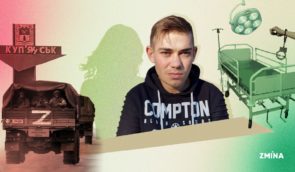
Dmytro and Olena from Kupyansk imprisoned for sending SBU pictures of Russian equipment: Couple tells how they waited for town liberation in captivity
During the occupation of Kupyansk, 30-year-old local resident Dmytro Hrechanyi was taking photos and recording videos of the movement of Russian military equipment and sending them along with geolocation marks to the Security Service of Ukraine (SBU). In early August, Dmytro and his girlfriend Olena [name is changed] were summoned to the police station for questioning: they were asked whether they cooperated with the Ukrainian special services. During the interrogation, the occupiers made a backup copy of the man's phone and found previously deleted pictures of military equipment. Both of them were imprisoned and held separately.


